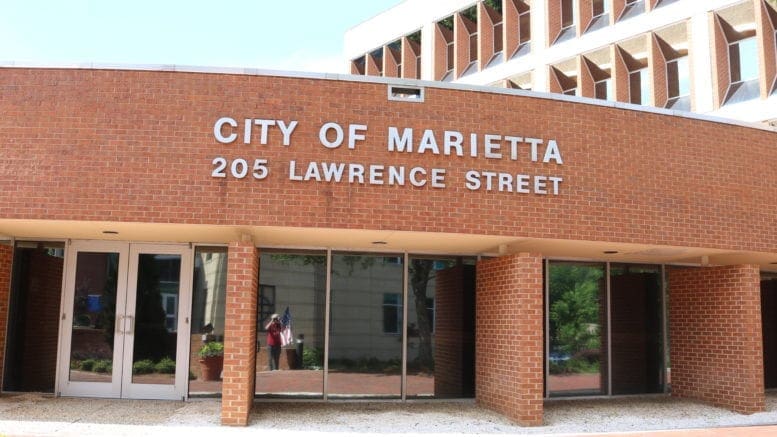2020’s landscape has-quite obviously- been dominated by a pair of historic developments-the COVID-19 pandemic and the renewed civil rights movement sparked by recent controversial police shootings, exemplified by Black Lives Matter.
The Marietta Museum of History is one of a growing number of such institutions across the country aiming to preserve both of these life-changing stories for the interest and education of future generations.
[Correction: when originally published this article referred to Ms. McCay as “McKay.” We regret the error and apologize to Ms. McCay.]
On the pandemic, museum collections director Christa McCay said “We are collecting individual stories from people.” She says they’re looking for a wide range of narratives-such as how families have hunkered down and reconnected during pandemic-forced restrictions and lockdowns and how parents and students coped with the abrupt switch to at-home and online schooling. She said art or other projects produced by locked-down students would also be welcome.
“We also want to find out on what it’s been like missing out on key events like graduations and the last day of school and birthdays-things we usually celebrate with a lot of other people. We’ve had to do thing in a much smaller way, “ she noted.
Collecting physical objects that reflect the pandemic’s scope is another major piece of the puzzle, she said, such as masks made by volunteers, yard signs expressing support for first responders and t-shirts printed by a local brewery as part of a COVID-19-related fundraiser. They’re also seeking fliers advertising food drives and other help for the needy.
She says staffers have been busy gathering digital images reflecting the battle against COVID-19-as well as pictures documenting the other major story- recent civil rights marches and events that sprang up on the wake of the George Floyd shooting. They’ve also recorded recent Juneteenth and Black Lives Matter events.
McCay added that “The posters that people have been carrying (at protests), we would love to have some of those in our collection for future generations to see. Both the mass-produced ones those that are hand-written would be amazing.” She said they’re also on the hunt for such things as protest t-shirts and video files of marches and demonstrations.
Museum director Jan Galt said the quickly-developing rush to collect reflects a shift in attitude-both within the museum community and in society at large. Traditionally she said, museums waited to collect artifacts until following an historical event. But, she says, with communication and information transmission having become instantaneous, the push to collect data has likewise begun sooner than later. Collections can also be added to in the future as she points out.
“I also see a trend in our younger generations, in that they tend not to want ‘stuff.’ Their lives are more streamlined and they don’t want clutter of saving stuff. Saying this, we in our museum think it’s important to collect before things are gone forever.”
McCay chimes in by saying that she thinks future exhibits can have a much broader range of artifacts and remembrances are collected as events unfold.
She says while it’s hard to foresee how what’s being collected at the moment might be displayed down the line items could be part of a freestanding exhibit sometime in the future or perhaps serve as a local supplement to a traveling national display.
Museum officials said those interested in taking part can go to their website, mariettahistory.org and plug needed information into a Google document.
“Depending on what you’ve got we can contact you back and go from there, McCay said.
